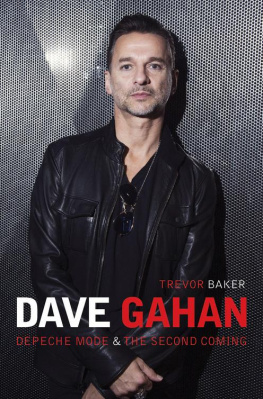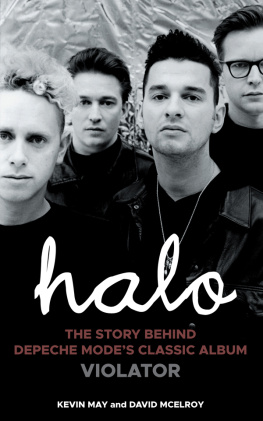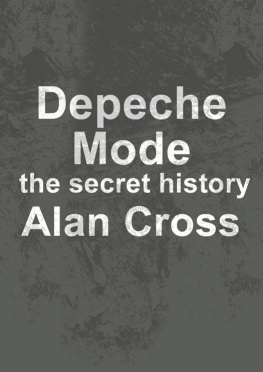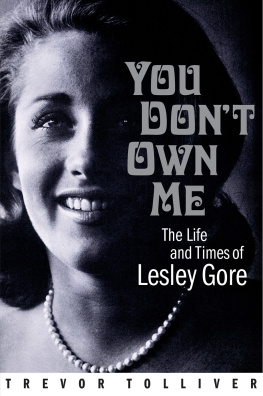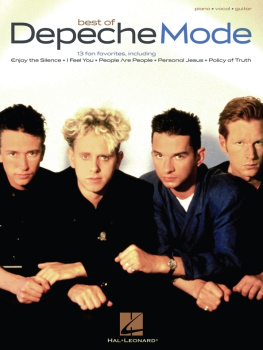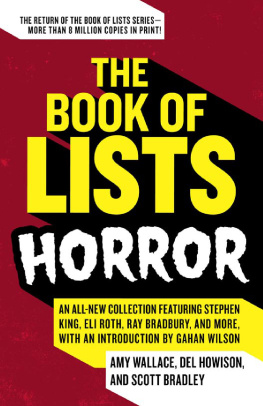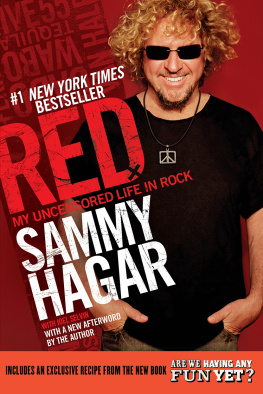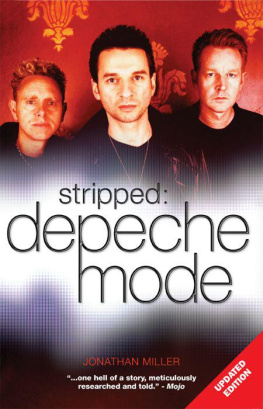In the 1980s, when Depeche Mode were seen by many, particularly in the UK, as merely a slightly odd teeny pop band, Dave Gahan must have dreamed of the day when his image would change. People would at last see the rock star not terribly well hidden behind his fresh face and a million geeky photo shoots, frilly shirts and bad suits. Well, he got what he wanted. Thanks to a well-documented and harrowing personal meltdown plus a series of searingly honest interviews he gave in the mid-1990s, Dave Gahan did indeed gain a new image.
As one of rocks most famed near-casualties.
However, the truth about Dave Gahan is that he was always a more complicated character than the stereotypically excessive rock behemoth or a frontman who only sings other peoples songs. At one of his numerous nadirs, Dave Gahan famously died for two minutes in the back of an ambulance; yet through his fabled work with Depeche Mode, his own acclaimed solo albums and his legendary live performances, his life will always be about so much more than that.
This book is inevitably a tale of what global success can do to you, but its also a story about what happens afterwards and how personal and professional triumph can be grasped from the edge of an abyss.
If Depeche Modes early press was to be believed, it sometimes seemed like there was something astonishing about a band coming from Basildon, Essex. Basildons not a slum. Its a perfectly normal, working-class town in south-east England. But the fact that three of the four long-term members came from there shaped how they were perceived for at least the first ten years of their career. When a band like The Smiths successfully captured a certain sound of Manchester in the 1980s, they were lauded for it. In contrast, any trace of Basildon detected in Depeche Modes music was a cause for mass sniggering in the British press. Perhaps its the fact that it has relatively little history: it was created as a new town in the 1940s for the nouveau-not-terribly-riche. After the Second World War, the government had ordered the creation of a green belt around London, to prevent the capital swallowing the countryside whole. So, with no new houses being built in London, hundreds of thousands of people ended up in new towns on the other side of the green belt. At the time it represented the hope of a better future. It would be a better place for the baby boomers or so planners hoped than the bombed-out terraces that many families came from. There were new factories opening, like the giant Ford plant in nearby Dagenham. There were also good transport links to London, just 26 miles away. The town still had a green, semi-rural feel and yet it was virtually a suburb of the capital.
Dave Gahan was the first member of the band to arrive there, in 1965, when he was just three years old. His mother was Sylvia Gahan, a ticket inspector on the buses, and his father was Jack Gahan, who worked in the offices of Shell Oil. He had an older sister, Sue, and two younger brothers, Philip and Peter. Jack played the saxophone in a Big Band so Daves early years were soundtracked by jazz, by Jacks own playing and records by the likes of Miles Davis and John Coltrane.
As Sue got older, Dave was also exposed to the kind of music she liked, soul singers such as Barry White and bands like the Stylistics. There were also regular plays for his mums favourites including sugary crooners like Johnny Mathis. Dave was a cheeky, happy child who liked to make his aunts laugh with his mimicry of rock stars like Mick Jagger.
Tragically, though, in 1972 Jack Gahan suddenly died. It goes without saying that this was a huge emotional blow for the whole family but there was a further level of confusion for Sue and David. The young Dave then learnt that his mum had been married before and that parternship had broken down, but not until after Dave had been born; therefore, her former husband, Len, was actually Daves biological father. Things were turned upside down in an instant.
There was always distrust for people you were meant to feel safe with after that, he said to the Daily Mirror in 2003. Teachers, getting into trouble with the police. Im still a bit like that. Ill still choose to cut through the prickly bushes rather than go down the smooth road.
It was understandably difficult for Sylvia to make ends meet, but even though Dave later remembered standing in the school dinners queue with free meal tickets, he says that his mum always protected them from any real feeling of poverty.
This was despite the fact that the well-intentioned work of the urban planners whod created Basildon was now starting to look a little misguided. The concrete was cracking and, as the economy plummeted in the 1970s, there were not enough jobs for all the people whod flocked there. Much of the green space had been swallowed up and there was little for kids to do. Where once there had been fields, football pitches, cricket ovals, countryside, there was now a huge town with not many jobs, and young people with nothing to do.
Dave Gahan started getting into trouble, first at home and then with the police. He began drinking and taking soft drugs at a very early age, even necking some of the barbiturates that his mum was prescribed for her epilepsy. These little downers were where it all started, he told NME years later.
His escapades were mostly limited to petty vandalism; to begin with, the police would just give him warnings but this didnt deter him and he kept getting caught. It didnt help that one of his favourite activities was graffiti and he used his own name as a tag. There werent too many Gahans in the whole of England, never mind Basildon, he told the The Times in 2001. I was arrested a fair few times. Not a very good villain.
Like most teenagers, Dave wanted to be liked and he desperately wanted to be cool. It helped that he was increasingly popular with the local girls. When he got older he would become a well-known face in the trendier Basildon pubs like The Sherwood. By this point music was already starting to become the most important thing in his life. To begin with, it was all about David Bowie, Slade and Gary Glitter. Then in 1976 and 1977 he was swept up in the new punk scene that was taking off across the country.
I remember my mother being so outraged when the Sex Pistols cursed on TV, he told Rolling Stone. I think thats really what got me going: I realised there was something I could join in with that would really piss my mum off.
He started going to see bands regularly, he got a job working on the speedway at a fairground, and he got his first tattoo done, at the age of 14, on the Southend seafront from an old sailor called Clive.

